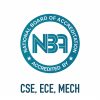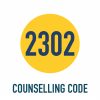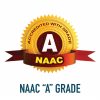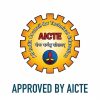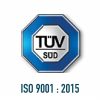Sri Shanmugha Educational Institutions
- ABOUT THE DEPARTMENT
- FACULTY PROFILE
- VISION & MISSION
- PO, PEO & PSO
- CURRICULUM and SYLLABI
- DEPARTMENT ACADEMIC CALENDAR
- RESEARCH & CONSULTANCY
- LIBRARY DETAILS
- LABORATORY FACILITIES
- STUDENT PARTICIPATION
- FACULTY PARTICIPATION
- INTERNSHIP & INDUSTRIAL VISITS
- PLACEMENT DETAILS
- PROFESSIONAL SOCIETY
- NEWSLETTER
- MAGAZINE
- E-RESOURCES
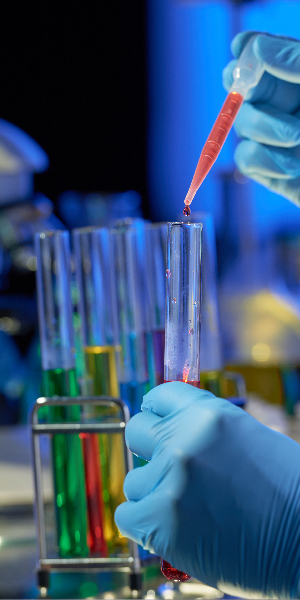
Welcome to the Biomedical Engineering Department, where innovation meets healthcare. Our department serves as a bridge between the realms of engineering and medicine, harnessing the problem-solving prowess of engineers and the medical expertise of physicians to enhance the quality of life through advancements in healthcare processes and products.
Sri Shanmugha College of Engineering and Technology has established the Department of Biomedical Engineering in the year 2020. The Department of Biomedical Engineering offers UG in Biomedical Engineering with the intake of 60 students. Faculty members are doing in-house research and publishing papers in peer reviewed international journals and conferences. Our faculty members have the following areas of expertise such as: Medical image processing, Bio-signal processing, Biomedical Instrumentation, Optimisation Algorithms, and Rehabilitation Engineering.
At our department, we are dedicated to pushing the boundaries of biomedical engineering through cutting-edge research, interdisciplinary collaboration, and excellence in education. Our faculty members are leaders in their respective fields, conducting groundbreaking research in areas such as biomedical imaging, biomaterials, biomechanics, and medical device design.
We offer a comprehensive range of academic program, providing students with the knowledge and skills needed to tackle complex challenges in healthcare. Our state-of-the-art facilities and resources empower students and faculty to explore, innovate, and make meaningful contributions to the field.
Through industry partnerships, we have signed MoU’s for Skill Developments, training, collaborative projects, and experiential learning opportunities. We prepare our students to become future leaders in biomedical engineering, driving positive change and making a difference in the lives of patients worldwide.
Each student is encouraged to develop innovative products on their own as part of Innovative Projects and the best are presented in intercollegiate competitions. Our students have won prizes in the national level innovation design contest. Keeping the employability of the graduates in mind, we offer value added labs using the latest software and also offer special programmes on communication skills and soft skills so that they are technical experts as well as confident personalities in today’s competitive job market.
The department has organised many National seminars, Workshops and Faculty development programmes on various topics of biomedical engineering in association with various Professional bodies, IIC and so on.
The students of Department of Biomedical Engineering are placed in reputed healthcare industries like Omega healthcare pvt.ltd, FoxConn Hon Hai Precision Industry Co Ltd, O2 Saver Pvt. Ltd, Brakes India Ltd., and so on.
DEPARTMENT OF BIOMEDICAL ENGINEERING
|
S.NO |
NAME OF THE FACULTY MEMBER |
DESIGNATION |
|
1 |
Dr. R. Raja Sudharsan |
HoD/Associate Professor |
|
2 |
Dr. G. Petchinathan |
Professor |
|
3 |
Dr. K. Pandiammal |
Associate Professor |
|
4 |
Mr.K.Sivasubramaniam |
Assistant Professor |
|
5 |
Mr.G.Lingeswaran |
Assistant Professor |
|
6 |
Mr.P.Sudarsan |
Assistant Professor |
|
7 |
Mrs P.Kavikiruthika |
Assistant Professor |
|
8 |
Ms.S.Nithya |
Assistant Professor |
|
9 |
Mr.G.Vijaykumar |
Assistant Professor |
|
10 |
Mr.P.Pradosh Kumar |
Assistant Professor |
|
11 |
Mrs.P.Dhivya |
Assistant Professor |
|
12 |
Mrs.S.Kanimozhi |
Assistant Professor |
R.RAJA SUDHARSAN
| Faculty Details | 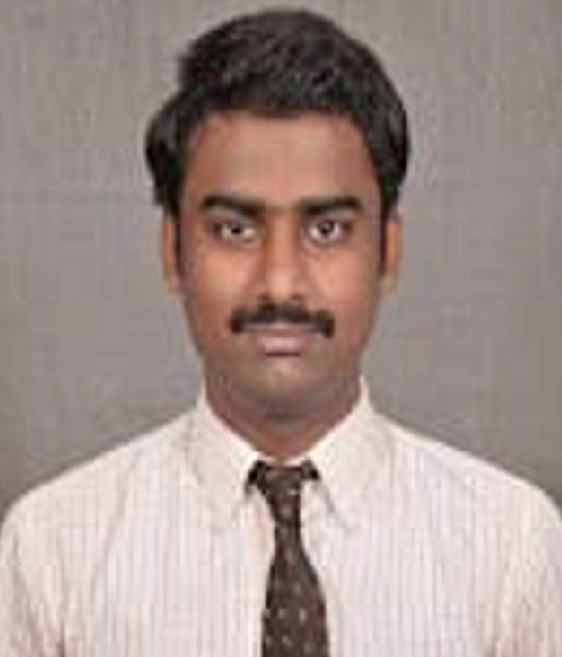 |
|
| Name of Faculty | Dr. R. Raja Sudharsan | |
| Designation | HoD & Associate Professor | |
| Contact No | 7708938181 | |
| rajasudharsan.r@shanmugha.edu.in | ||
| Qualification | M.Tech., Ph.D. | |
| Specialization | Bio medical Instrumentation | |
| Experience (in years) | ||
| Teaching | 4.7 years | |
| Industry/ Research | 3 years | |
| Dr. R. Raja Sudharsan has received the Bachelor of Technology in the Department of Electronics and Communication Engineering in 2015, Master of Technology in VLSI Design in 2017 from the Kalasalingam University and Completed his Ph.D. at Kalasalingam Academy of Research and Education. He is Working as an Assistant Professor at Sri Shanmugha College of Engineering and Technology, Salem. He is having 7+ years of professional experience in Teaching, Research, and Industry. He has Undertaken two projects from START-UP NIDHI supported by DST and IVP Voucher supported by MSME, Tamilnadu India. He as published nearly 30 papers from reputed Journals and Conferences indexed in SCIE, Scopus and Web of Science. His specialized areas in VLSI, Sensors, Biomedical Design and Instrumentation, IoT, Embedded Systems, Optimization Algorithms and Medical Electronics. He can be reached at rajasudharsan5255@gmail.com | ||
DR.G.PETCHINATHAN
| Faculty Details |  |
|
| Name of Faculty | Dr. G. Petchinathan | |
| Designation | Professor | |
| Contact No | 9003523312 | |
| petchinathan.g@shanmugha.edu.in | ||
| Qualification | M.E., Ph.D. | |
| Specialization | Electrical measurements, Process control and Instrumentation | |
| Experience (in years) | ||
| Teaching | 19 Years | |
| Industry | – | |
| Dr. G. Petchinathan is working as Professor in the Department of Biomedical Engineering and the Deputy Controller of Examinations at Sri Shanmugha College of Engineering and Technology in Sankari, Salem District, He has 19 years of teaching experience in universities and colleges in India and abroad. He received his B.E. degree in Instrumentation and Control Engineering from Madurai Kamaraj University, Tamil Nadu, India, earned in 2002, as well as an M.E. degree in Electrical Engineering from Jadavpur University, Kolkata, West Bengal, India, completed in 2007. Moreover, he attained his PhD degree from the Kalasalingam Academy of Research and Education, Tamil Nadu, India, in 2016. Dr. Petchinathan has contributed to more than 15 research papers published in esteemed international journals and conferences. His research interests encompass intelligent control, controller tuning, system identification, evolutionary optimization techniques, model reference adaptive controllers, and the Internet of Things. | ||
K. PANDIAMMAL
| Faculty Details |  |
|
| Name of Faculty | Dr. K. Pandiammal | |
| Designation | Associate Professor | |
| Contact No | 8940664391 | |
| pandiammal.k@shanmugha.edu.in | ||
| Qualification | M.E, Ph.D. | |
| Specialization | Applied Electronics | |
| Experience (in years) | ||
| Teaching | 12 Years | |
| Industry | – | |
| Dr.K.Pandiyammal has been working in the Department of Biomedical Engineering as an Associate Professor at Sri Shanmugha College of Engineering and Technology since 2021. She worked as Lecturer at GKM College of Engineering and Technology for 1 year and worked as Assistant professor at Jerusalem College of Engineering, Chennai for 11 years 6 months. She completed Ph.D at Madras Institute of Technology, Chennai in 2022 and M.E Applied Electronics at College of Engineering Guindy, Anna University in 2007 and B.E. at Government college of Engineering,salem in 2003. She has published papers in four International Journals and she presented papers in two International Conferences and three National Conferences. | ||
Mr. K. Sivasubramaniam
| Faculty Details |  |
|
| Name of Faculty | Mr. K. Sivasubramaniam | |
| Designation | Assistant Professor | |
| Contact No | 9942363192 | |
| sivasubramaniyam.k@shanmugha.edu.in | ||
| Qualification | M.E | |
| Specialization | Communication Systems | |
| Experience (in years) | ||
| Teaching | 3 Years | |
| Industry | – | |
| K Sivasubramaniyam received B.E degree in Electronics & Communication Engineering in the year 2012 from Paavai Engineering College, Pachal and M.E degree in Communication Systems in the year 2014 from Paavai Engineering College, Pachal , both from Anna University, Chennai, India. He is working as Assistant Professor in Department of Biomedical Engineering at Sri Shanmugha College of Engineering & Technology, Sankari, India. His are interest includes Analog Circuits, Microprocessor, Instrumentation Engineering. | ||
G. LINGESWARAN
| Faculty Details | 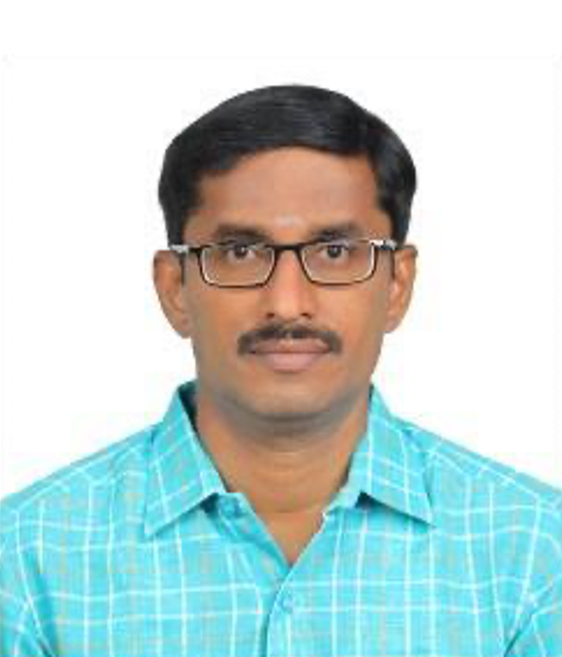 |
|
| Name of Faculty | Mr.G.Lingeswaran | |
| Designation | Assistant Professor | |
| Contact No | 8883419061 | |
| lingeswaran.g@shanmugha.edu.in | ||
| Qualification | M.E. | |
| Specialization | VLSI design, Biomedical Image processing | |
| Experience (in years) | ||
| Teaching | 19 years | |
| Industry | – | |
| Mr. G.Lingeswaran completed DEEE in the year 1999 at Muthayammal Polytechnic College. Completed B.E (ECE) in the year 2002 at Annai Mathammal Sheela Engineering College. Completed M.E (VLSI Design) in the Year 2009 at Kongu Engineering College. PhD registered at Anna University in the July 2023 Session. Has a total experience of 19 years in academics. At present working as an Assistant Professor in the Department of Sri Shanmugha College of Engineering & Technology. | ||
P.SUDARSAN
| Faculty Details |  |
|
| Name of Faculty | Mr.P.Sudarsan | |
| Designation | Assistant Professor | |
| Contact No | 9894794250 | |
| sudarsan.p@shanmugha.edu.in | ||
| Qualification | M.E. | |
| Specialization | Communication systems, signal processing | |
| Experience (in years) | ||
| Teaching | 10 Years | |
| Industry | 2 years | |
| P.Sudarsan received his B.E degree in Electronics & Communication Engineering in the year 2008 and M.E degree specialized in Communication Systems in the year 2014, both from Anna University, Chennai, India. He is working as Assistant Professor in Sri Shanmugha College of Engineering & Technology, Sankari, India. His research interest includes conditioning of biomedical signals and processing applied to the medical field. Currently, he is pursuing Ph.D in Information and Communication in Anna University, Chennai, India. | ||
MRS. P. KAVIKIRUTHIKA
| Faculty Details | 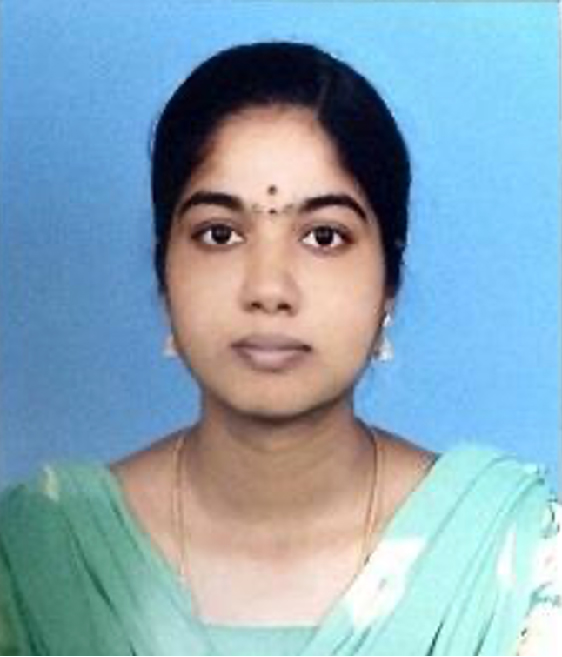 |
|
| Name of Faculty | Mrs P. Kavikiruthika | |
| Designation | Assistant Professor | |
| Contact No | 8056428136 | |
| kavikiruthika.p@ shanmugha.edu.in | ||
| Qualification | M.E. | |
| Specialization | Embedded system Technologies | |
| Experience (in years) | ||
| Teaching | 1 year | |
| Industry | – | |
| P.KAVIKIRUTHIKA is working in the Department of Biomedical Engineering as an Assistant Professor at Sri Shanmugha College of Engineering and Technology since 2023. She completed M.E Embedded systems Technologies in First Class at Knowledge Institute of Technology and B.E. Electrical and Electronics Engineering in First class at Knowledge Institute of Technology. Her area of interest include Electrical Machines, Power electronics, Embedded system and IoT. She has published papers in International Journals and National Conferences. | ||
S. NITHYA
| Faculty Details | 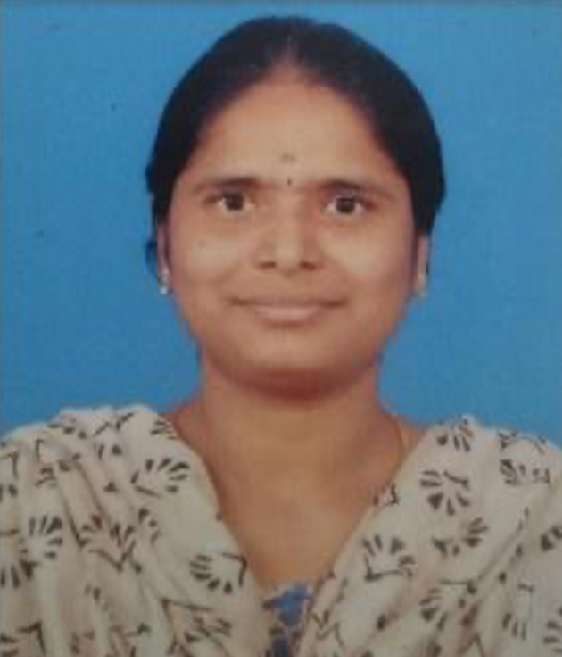 |
|
| Name of Faculty | Ms.S.Nithya | |
| Designation | Assistant Professor | |
| Contact No | 9566806644 | |
| labs@shanmugha.edu.in | ||
| Qualification | M.E. | |
| Specialization | Control and Instrumentation Engineering | |
| Experience (in years) | ||
| Teaching | 11 months | |
| Industry | 2 years | |
| S.NITHYA has been working in the Department of Biomedical Engineering as an Assistant Professor at Sri Shanmugha College of Engineering and Technology since 2023. She worked as an assistant professor in the department of BME at Sri Shanmugha College of Engineering and Technology for 2 years and 1 month. She completed M.E Control and Instrumentation Engineering in First Class with Distinction at Erode Kongu Engineering College and B.E. Faculty of Electrical Engineering in First class with Distinction. She has published papers in three International Journals and she presented papers in four International Conferences and four National Conferences. | ||
G. VIJAYKUMAR
| Faculty Details | 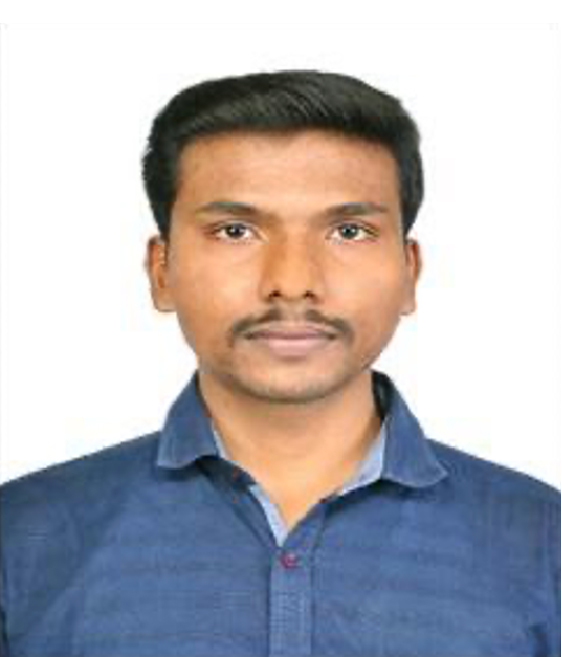 |
|
| Name of Faculty | Mr.G.Vijaykumar | |
| Designation | Assistant Professor | |
| Contact No | 9942860231 | |
| vijaykumarg@shanmugh.edi.in | ||
| Qualification | M.E. | |
| Specialization | Power Electronics and Drives | |
| Experience (in years) | ||
| Teaching | 1 Year | |
| Industry | – | |
| G.Vijaykumar is serving in the Department of Biomedical Engineering, Sri Shanmugha College of Engineering and Technology since 2023. He is currently pursuing PhD in Faculty of Electrical Engineering, Anna University, Chennai. He received his Masters Degree in Power Electronics and Drives from Government College of Technology, Coimbatore (First Class with Distinction) and B.E. in Electronics and Instrumentation Engineering from Adhiyamaan College of Engineering, Hosur. His research interests include Virtual & Bio Instrumentation, Sensors in Medical Applications, Applications of IoT in Healthcare, Medical device design, Energy management system for microgrids, pulse width modulation techniques, protection of power devices, and grid integration of renewable energy resources. | ||
P.PRADOSH KUMAR
| Faculty Details | 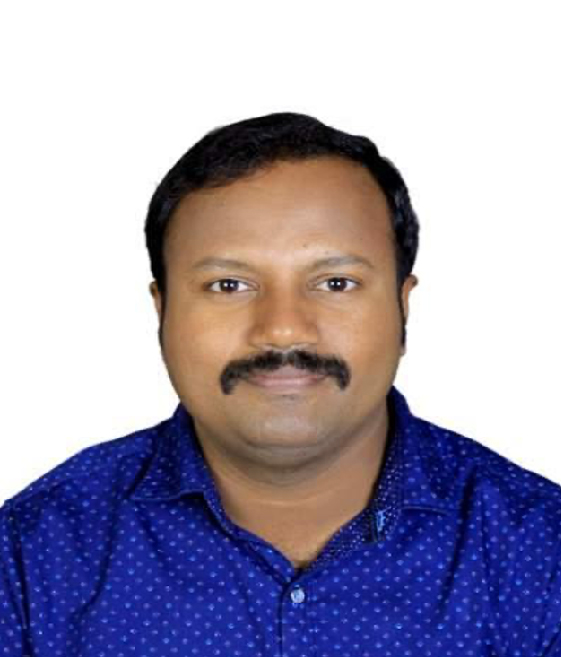 |
|
| Name of Faculty | Mr. P.Pradosh Kumar | |
| Designation | Assistant Professor | |
| Contact No | 8903248585 | |
| pradoshkumar.p@shanmugha.edu.in | ||
| Qualification | M.E. | |
| Specialization | Applied Electronics | |
| Experience (in years) | ||
| Teaching | 11.5 years | |
| Industry | 3.5 years | |
| Mr. Pradosh kumar P is working as an Assistant Professor in the Department of Biomedical Engineering from Sri Shanmugha College of Engineering & Technology, Salem. He completed his B.E. in Electronics & Instrumentation Engineering from Annamalai University, Chidambaram in the year 2005 and his M.E. in Applied Electronics from Noorul Islam University, Kumara coil, Thuckalay in 2012. He is currently pursuing his Ph.D. from NIT Tiruchirappalli in Control System Design. His areas of interest include Process control, Control systems, Electronics, Biomedical Instrumentation, Power Electronics and Embedded systems. He has nearly 12 years of academic and 4 years of industrial experience. He holds a Lifetime Membership in ISOI. | ||
MRS.P.DHIVYA
| Faculty Details | 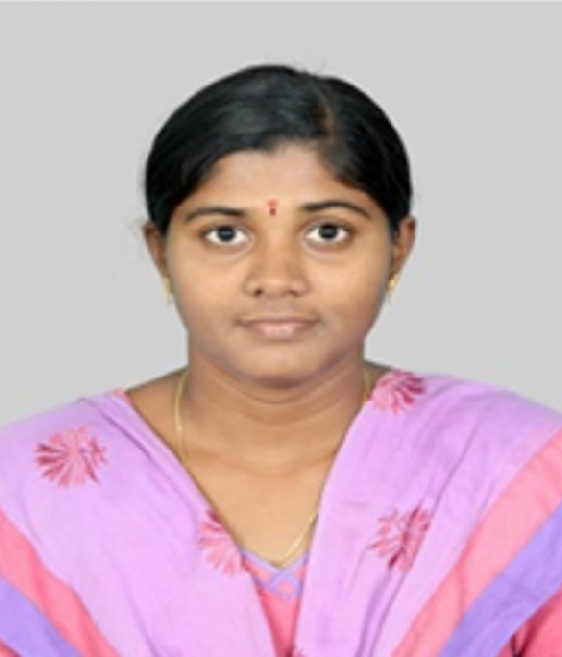 |
|
| Name of Faculty | Mrs.P.Dhivya | |
| Designation | Assistant Professor | |
| Contact No | 9486990026 | |
| dhivyapbme@ shanmugha.edu.in | ||
| Qualification | M.E. | |
| Specialization | Embedded systems | |
| Experience (in years) | ||
| Teaching | 2 years 4 months | |
| Industry | – | |
| P.DHIVYA has been working in the Department of Biomedical Engineering as an Assistant Professor at Sri Shanmugha College of Engineering and Technology since 2023. She worked as an assistant professor in the department of ECE at Sri Shanmugha College of Engineering and Technology for 2 years and 1 month. She completed M.E Embedded systems in First Class with Distinction at Bannari Amman Institute of Technology and B.E. Electrical and Electronics Engineering in First class with Distinction at Erode Sengunthar Engineering College. She has published papers in three International Journals and she presented papers in four International Conferences and four National Conferences. | ||
MRS.S.KANIMOZHI
| Faculty Details | 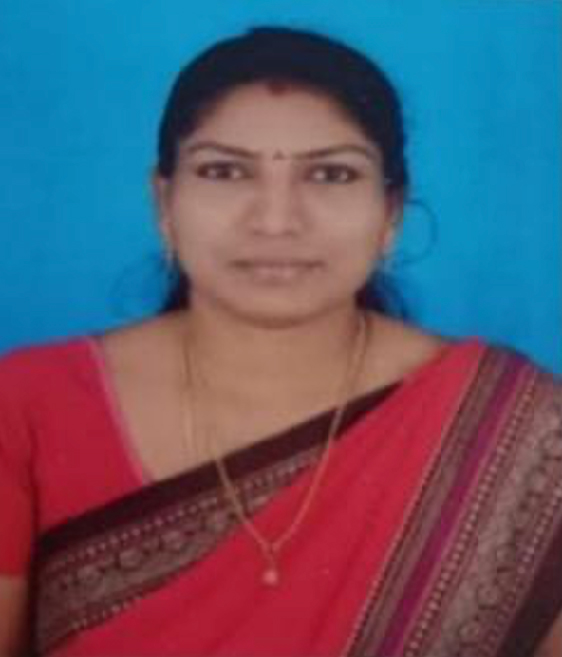 |
|
| Name of Faculty | Mrs.S.Kanimozhi | |
| Designation | Assistant Professor | |
| Contact No | 9600338618 | |
| kanimozhi.s@shanmugha.edu.in | ||
| Qualification | M.E | |
| Specialization | Applied Electronics | |
| Experience (in years) | ||
| Teaching | 13 years | |
| Industry | 3 years | |
| Mrs.S.KANIMOZHI is working in the Department of Biomedical Engineering as an Assistant Professor at Sri Shanmugha College of Engineering and Technology since 2023. She completed M.E Applied Electronics in First Class at Salem College of Technology and B.E. Electronics and Communication Engineering in First class at Government College of Engineering. Her area of interest Microprocessor and Microcontroller, Communication Systems,Digital Electronics, embedded system, and IoT. She has published papers in one International Journals, two National Conferences. | ||
VISION
To nurture and develop biomedical professionals with moral and ethical values to meet the technical challenges in the society.
MISSION
- To provide academic excellence through curriculum enrichment, Teaching learning and faculty competence.
- To apply innovative strategies for the design and development of Clinical equipment thereby making them scientists, technocrats, administrators, and entrepreneurs.
- To develop clinically translatable solutions for the betterment of human life by training biomedical engineers to be lifelong learners with human and ethical values
PROGRAM EDUCATIONAL OUTCOMES (PEOs)
PEO1 – To enable the graduates to demonstrate their skills in solving challenges in their chosen field through the core foundation and knowledge acquired in engineering and biology.
PEO2 – To enable the graduates to exhibit leadership, make decisions with societal and ethical responsibilities, function and communicate effectively in multidisciplinary settings.
PEO3 – To ensure that graduates will recognize the need for sustaining and expanding their technical competence and engage in learning opportunities throughout their careers.
PROGRAM SPECIFIC OUTCOMES (PSOs)
PSO1 – To design and develop biomedical healthcare devices that reduce physician burnout and enhance the quality of life for the end user by applying fundamentals of Biomedical Engineering.
PSO2 – To apply software skills in developing algorithms for solving healthcare related problems in various fields of the medical sector.
PSO3 – To adapt to emerging information and communication technologies (ICT) for current societal and scientific issues thereby developing indigenous medical instruments that are on par with the existing biomedical technology.
PROGRAM OUTCOMES (POs)
PO1. Engineering knowledge: Apply the knowledge of mathematics, science, engineering fundamentals, and an engineering specialization to the solution of complex engineering problems.
PO2. Problem analysis: Identify, formulate, review research literature, and analyze complex engineering problems reaching substantiated conclusions using first principles of mathematics, natural sciences, and engineering sciences.
PO3. Design/development of solutions: Design solutions for complex engineering problems and design system components or processes that meet the specified needs with appropriate consideration for the public health and safety, and the cultural, societal, and environmental considerations.
PO4. Conduct investigations of complex problems: Use research-based knowledge and research methods including design of experiments, analysis and interpretation of data, and synthesis of the information to provide valid conclusions.
PO5. Modern tool usage: Create, select, and apply appropriate techniques, resources, and modern engineering and IT tools including prediction and modelling to complex engineering activities with an understanding of the limitations.
PO6. The engineer and society: Apply reasoning informed by the contextual knowledge to assess societal, health, safety, legal and cultural issues and the consequent responsibilities relevant to the professional engineering practice.
PO7. Environment and sustainability: Understand the impact of the professional engineering solutions in societal and environmental contexts, and demonstrate the knowledge of, and need for sustainable development.
PO8. Ethics: Apply ethical principles and commit to professional ethics and responsibilities and norms of the engineering practice.
PO9. Individual and team work: Function effectively as an individual, and as a member or leader in diverse teams, and in multidisciplinary settings.
PO10. Communication: Communicate effectively on complex engineering activities with the engineering community and with society at large, such as, being able to comprehend and write effective reports and design documentation, make effective presentations, and give and receive clear instructions.
PO11. Project management and finance: Demonstrate knowledge and understanding of the engineering and management principles and apply these to one’s own work, as a member and leader in a team, to manage projects and in multidisciplinary environments.
PO12. Life-long learning: Recognize the need for, and have the preparation and ability to engage in independent and life-long learning in the broadest context of technological change.
Research paper format
2023
| Murugesan, Rajadurai, Srikanth Holalu Venkataramana, Siva Marimuthu, Praveena Bindiganavile Anand, Santhosh Nagaraja, J. Samson Isaac, R. Raja Sudharsan et al. “Influence of Alloying Materials Al, Cu, and Ca on Microstructures, Mechanical Properties, And Corrosion Resistance of Mg Alloys for Industrial Applications: A Review.” ACS omega 8, no. 41 (2023): 37641-37653. |
Conference Proceedings
2024
| Reethika, A., S. Priyadharsini, G. Vijaykumar, A. Rasheedha, G. Devi, and P. Kanaga Priya. “Enhancing Pervasive Developmental Disorder Interventions for Children through Deep Learning Algorithms in Virtual Reality.” In 2023 2nd International Conference on Automation, Computing and Renewable Systems (ICACRS), pp. 902-907. IEEE, 2023. |
Patent Details
| S.No | Title | Inventors/ Applicants Name | Application Number | Status |
| 1 | Implementation of Advanced Theranostics for The Central Nervous System
and Neurological Disorders using Functional Inorganic Nanomaterials |
Dr.R.Raja Sudharsan | 202231075449 A | Published |
| 2 | AI Based Smart Walking Stick for
Visually Impaired |
Mr.P.Sudarsan | Design No: 397577-001 | Granted |
| 3 | Remodelling of Phenotyping Root Zone and Moisture Level Analysis | Dr.R.Raja Sudharsan | 202341034716 | Published |
Book Chapter
| S.No | Author Name | Chapter Title |
Book Title
|
Publisher | Chapter/
Page No/ Year of Publication |
ISBN/DOI Number |
| 1. | R.Raja Sudharsan | LeafNet: Design and Evaluation of a Deep CNN Model for Recognition of Diseases in Plant Leaves | Applications of Computer Vision and Drone Technology in Agriculture 4.0 | Springer | 2024 | Print ISBN: 978-981-99-8683-5
DOI: https://doi.org/10.1007/978-981-99-8684-2_7 |
Book Publications
| S.No | Faculty Name | Title of the Book | Publisher | Year of Publication | ISBN Number |
| 1 | Dr.R.Rja Sudharsan | Wireless Sensor Networks | RK Publishers | 2022 | 978-81-960402-0-8 |
| 2 | Dr.G.Petchinathan | Internet of Things: Architecture, Protocols and Applications | Global Aasan Publishers | 2023 | 978-81-19313-14-3 |
Sponsored Research
| S.No | Funding Agency with
Sanction Order No |
Project /Proposal Title | Proposal Scheme | Year of Sanction |
Amount/Status
|
| 1 | Funding Agency : MSME
Sanction Order No : IDEATN010607 |
Biometric Assisted e – Health Record for Pregnant Women and Chronic patients linking Primary Health Centres (PHCs) and Government Hospitals using Cloud Computing | MSME Idea Hackathon 2.0 | 2023 | Rs:12,75,000
1st installment Received. Status of Completion: Project is ongoing |
Consultancy Projects
| S.No | Funding Agency | Project /Proposal Title | Year of Sanction |
Amount/Status
|
| 1 | Silicon Systems | Design and Development of IoT based Cloud Database Management for Medi-Data with the Embedment of LoRa WAN Technology | 2023 | 1,05,000/Completed |
| No. of Text Books Titles available | 65 |
| Sl.No | Book Title | Authors | Publishers | Edition | Total No. of Books |
| 1 | Electronic Devices and Circuit Theory | Boylestad
Nashelsky |
Pearson Publications | Tenth Edition | 6 |
| 2 | Electrical Drives and Controls | J.Gnanvadivel
S.Chitadevi J.Karthikeyan |
Anuradha Publications | second Edition | 1 |
| 3 | Electrical Drives and Controls | U.A.Bakshi
M.V.Bakshi |
Technical Publications | First Edition | 1 |
| 4 | Basic Electrical and Electronics Engineering | S.Prabhu
E.Baraneetharan A.Syed Musthaba |
Viraat Publishers | First Edition | 1 |
| 5 | Electronic Circuits and Electronic Devices | M.K.Balachander
T.Ravikumar |
VRB Publishers | First Edition | 1 |
| 6 | Electronic Circuits-II | Atul.P.Godse
Uday.P.Bakshi |
Technical Publications | Fourth Edition | 1 |
| 7 | Electrical Power Systems | C.L.Wadhwa | New Age International Publishers | Sixth Edition | 1 |
| 8 | Electronics & Microprocessors | A.P.Godse
D.A.Godse |
Technical Publications | First Edition | 1 |
| 9 | Engineering Electromagnetics | W.H.Hayt
J.A.Buck |
Tata Mc Graw Hill | Seventh Edition | 1 |
| 10 | Communication theory | Dr.K.S.Srinivasan | Anuradha Publications | First Edition | 1 |
| 11 | Design with Operational Amplifiers and Analog Integrated Circuits | Sergio Franco | Tata Mc Graw Hill | Third Edition | 1 |
| 12 | Biomedical instrumentation | Leslie Cormwell
Fred J. Weibell Erich A.Pfeiffer |
PHI Publications
|
Second Edition | 1 |
| 13 | Introduction to System Design using IC | B.S.Sonde | New Age International Publishers | First Edition | 1 |
| 14 | High Speed Networks and Internet | William Stallings | Pearson Publications | Second Edition | 1 |
| 15 | Linear Integrated Circuits | U.A.Bakshi
A.P.Godse A.V.Bakshi |
Technical publications | First Edition | 2 |
| 16 | Design and Analysis of Experiments | Douglas.C
Montgomery |
Wiley | Eight Edition | 3 |
| 17 | Electronic Devices | Thomas l. Floyd | Pearson Publications | Seventh Edition | 2 |
| 18 | Electrical Power System | C L Wadhwa | New age International Publisher | Sixth | 1 |
| 19 | Electronic Devices | U A Bakshi
A P Godse |
Technical Publication | First Edition | 1 |
| 20 | Electromagnetic Waves & Radiating System | Edward C Jordan
Keith G Balmain |
PHI Publisher | Second Edition | 1 |
| 21 | Electric Circuits & Electron Devices | Dr K Bommanna Raj
Dr S Sasikumar |
Hitech Publisher | First Edition | 3 |
| 22 | Basic Electrical Engineering | VN Mittle,
Mittal Arvind |
McGraw Hill Publisher | First Edition | 2 |
| 23 | Electric Circuit & Electron Devices | M K Balachandran
T Ravikumar |
VRB Publisher | First Edition | 1 |
| 24 | Electronic & Microprocessor | A P Godse
P A Godse |
Technical Publication | First Edition | 2 |
| 25 | Electrical & Instrumentation Engineering | Dr C Rameshbabu Durai | Sri Krishna Hitech Publisher | First Edition | 1 |
| 26 | Basic Electrical Engineering | D P Kothari
I J Nagrath
|
McGraw Hill Publisher | First Edition | 1 |
| 27 | Electronic Circuit Analysis & Design | Donald A Neamen | McGraw Hill Publisher | Third Edition | 2 |
| 28 | Control System principles & Design | M Gopal | McGraw Hill Publisher | Fourth Edition | 2 |
| 29 | Communication System | A Bruce Carlson
Paul B Crilly |
Tata McgrawHill Publisher | First Edition | 1 |
| 30 | CMOS Analog Circuit Design | Philip E Allen
Douglas R Holberg |
Oxford | Second Edition | 1 |
| 31 | Circuit theory | J. Gnanavadivel
C Senthilkumar Dr.P Maruthupandi |
Anuradha Publication | First Edition | 2 |
| 32 | Digital Signal Processor | B Venkatramani
M. Bhaskar |
Mcgraw Hill | Second Edition | 1 |
| 33 | Electric Circuit Design | A Maswoodhur Rahman | Srikrishna Hitech Publisher | First Edition | 1 |
| 34 | Signals and Systems | S Poornachandran
B.Sasikala |
McGraw Hill Publisher | Third Edition | 2 |
| 35 | Signals and Systems | R Ranjan | HSC MdGraw Hill | Second Edition | 1 |
| 36 | Operational Amplifiers and Linear Integrated Circuits | K Lal Kishore | Pearson | First Edition | 2 |
| 37 | Digital Signal Processing | Emmanual Iteachor
Barrie W Jervis |
Pearson | Second Edition | 1 |
| 38 | Analysis & Design of Analog Integrated Circuits | Paul R Gray
Paul J Hurst Stephen H Lewis Robert G Mayer |
Wiley India | Fifth Edition | 1 |
| 39 | Analog & Digital Communication | Dr. K S Srinivasan | Anuradha Publication | First Edition | 1 |
| 40 | Basic Electrical & Electronics Engineering | S Prabhu
E Baraneerthan A SyedMusthaba |
Viraat Publications | First Edition | 1 |
| 41 | High Performance Communication Network | Jean Walrand
Pravin Varaiya |
Elsevier | Second Edition | 1 |
| 42 | Digital Signal Processor | B Venkataraman
M Bhaskar |
Tata Mcgraw Hill Education | Second Edition | 1 |
| 43 | Data Structure Design | Dr. S Zulaikha Beevi
Dr P Shanthi Dr S Kanimozhi |
JBR TRISEA Publications | First Edition | 1 |
| 44 | Modern VLSI Design | Wayne Wolf | PHI Learning | Fourth Edition | 1 |
| 45 | Fundamentals of Logic Design | Charles H Roth Jr | Cenage Learning | Fifth Edition | 1 |
| 46 | Modern Control System | Richard G Dorf
Robort H Bishop |
Pearson | First Edition | 1 |
| 47 | Algorithm for VLSI Physical Design Automation | Naveed Sherwani | Springer | Third Edition | 1 |
| 48 | Principles of Communication Systems | Herbert Taub
Donald L Schilling Goutam Saha |
Tata Mc Graw hill Higher Education | Third Edition | 1 |
| 49 | Basic Electrical Engineering | VN Mittle
Aravind Mittle |
Tata Mc Graw hill Higher Education | First Edition | 1 |
| 50 | Electrical Power System | C L Wadhwa | New Age International Publications | Sixth Edition | 1 |
| 51 | Fundamentals of Communication Systems | John G Prakis
Masood Salehi |
Pearson | Eight Edition | 1 |
| 52 | VHDL Modulator Design & Synthesis of cores & System | Zainalabedin | TatMCgraw Hill Edition | Fourth Edition | 1 |
| 53 | VHDL Primer | J Bhasker | PHI Learning | Third Edition | 1 |
ANOTOMY HUMAN PHYSIOLOGICAL AND BIOSCIENCES LABORATORY
Human Anatomy and Physiology Laboratory provides students with a comprehensive understanding of the structure and function of the human body through hands-on experiences, experimentation, and observation. It serves as a foundation for students pursuing careers in medicine, healthcare, biology, and related fields.
Biosciences laboratories play a crucial role in advancing our understanding of living organisms and addressing pressing challenges facing humanity, from human health to environmental sustainability. They serve as hubs of innovation and discovery, driving progress in both fundamental biological knowledge and applied research.
| Sl. No. | Description of Equipment | Required numbers
(for batch of 30 students) |
| 1. | Colorimeter | 2 Nos |
| 2. | Spectrophotometer | 1 No. |
| 3. | pH meter | 1 No |
| 4. | Weighing balance | 1 No |
| 5. | Refrigerator | 1 No |
| 6. | SDS gel electrophoresis | 1 No |
| 7. | TLC, ready TLC plates | 1 No |
| 8. | Wintrobe’s tube | 2 Nos |
| 9. | Centrifuge Normal | 1 No |
| 10. | Microslides | 2 packets |
| 11. | Lancet | 5 boxes |
| 12. | Microscope | 1 No |
| 13. | Neubaur’s Chamber | 2 Nos |
| 14. | Heparinized Syringe | 1box |
| 15. | Haemoglobinometer | 1 No |
| 16. | Capillary tubes | 1 box |


Fundamentals of Electronic Devices and Circuits Laboratory
Fundamentals of Electronic Devices and Circuits Laboratory provides a hands-on learning environment where students can gain practical skills and deepen their understanding of electronic circuits, preparing them for further study and careers in electrical engineering, electronics, and related fields.
| Sl. No. |
Description of Equipment |
Required numbers
(for batch of 30 students) |
| 1. | CRO 30MHz | 10 |
| 2. | DC Digital Ammeter | 02 |
| 3. | DC Digital Voltmeter | 02 |
| 4. | Function Generator (3MHz) | 10 |
| 5. | Analog IC Tester | 01 |
| 6. | Digital IC Tester | 01 |
| 7. | Digital IC Trainer Kit | – |
| 8. | Dual Regulated Power supply (0-30) V/2A | 10 |
| 9. | Multiple Regulated Power suppy(+5) V/2A, (015)V/2A | – |
| 10. | Single Regulated Power supply (0-30) V/2A | 05 |
| 11. | Decade Inductance Box (6Dial) | 05 |
| 12. | Variable Resistance Box (6Dial) | 10 |
| 13. | Decade Capacitance Box (6Dial) | 05 |
| 14. | Analog Ammeter (0-1) mA,(0-10)mA, (0-100)mA, (0200) µA | Each 10 |
| 15. | Analog Voltmeter (0-5)V, (0-10)V, 0-100 mV | Each 10 |
| 16. | Digital Multimeter | 03 |
| 17. | Transformer (9-0-9) V | 04 |
| 18. | IC – BC107, BC148,2N2646, BFW10, IN4007 | Each 25 |
| 19. | Zener diode , Resistor, Capacitor, Inductors | Each 25 |
| 20. | Bread Board | 15 |
| 21. | Photodiode and SCR | each 20 |


Sensors and Measurements Laboratory
Sensors and Measurements Laboratory provides students with valuable hands-on experience in sensor technology, measurement techniques, and data analysis, preparing them for careers in various engineering fields where sensors play a crucial role.
| Sl. No. | Description of Equipment | Required numbers
(for batch of 30 students |
| 1. | Thermocouple | 15 Nos |
| 2. | RTD | 15 Nos |
| 3. | Strain Gauge (bonded and unbounded type) | 15 each |
| 4. | Photo transister, photo diode | 15
Nos/each |
| 5. | Resistors-Range between 1-0.0001 ohm | 30
Nos/each |
| 6. | CRO | 10 No |
| 7. | DSO | 5 Nos |
| 8. | LVDT | 5 Nos |
| 9. | Hall effect transducer | 15 Nos |
| 10. | Piezoelectric Transducer | 15 Nos |
| 11. | Potentiometer, Thermistor, LDR | 15 Nos |
| 12. | Trainer kits- Schering Bridge, Maxwell’s bridge, Hay’s bridge, | 1 No each |
| 13. | Gas sensor | 5 Nos |

BIOMEDICAL INSTRUMENTATION LABORATORY
Biomedical Instrumentation Laboratory plays a crucial role in advancing healthcare technology by training students in the design, development, and evaluation of medical devices and instruments. It bridges the gap between engineering principles and clinical applications, preparing students for careers in biomedical engineering, medical device industry, or healthcare research.
| Sl. No. | Description of Equipment | Required numbers
(for batch of 30 students |
| 1. | pH meter and conductivity meter | 1 No |
| 2. | Photo transducer for pulse measurement | 1 No |
| 3. | Sphygmomanometer and Stethoscope | 1 No |
| 4. | Blood flow measurement system | 1 No |
| 5. | Multiparameter(ECG, EMG, EEG) Simulator | 2 No |
| 6. | Function generator, DSO, Regulated Power supplies, Bread boards | 8 each |
| 7. | IC LM 324, AD 620, INA series (126,128 etc.), 555 Timer | 20 each |
| 8. | Opto Isolator IC | 1 No |
| 9. | Software tool for PCB design | 1 |
| 10. | IC 741 | 50 Nos |

BIOSIGNAL AND MEDICAL IMAGE PROCESSING LABORATORY
Biosignal Processing Laboratory plays a crucial role in advancing healthcare technology by training students in the analysis and interpretation of biosignals. It prepares students for careers in biomedical engineering, medical device development, healthcare research, or further study in related fields such as clinical informatics or computational biology. Medical Image Processing Laboratory plays a crucial role in advancing medical imaging technology by training students in the analysis and interpretation of medical images. It prepares students for careers in biomedical engineering, medical imaging research, healthcare informatics, or further study in related fields such as radiology or medical physics.
| Sl. No. | Description of Equipment | Required numbers
(for batch of 30 students |
| 1. | Personal Computers |
30 Nos |
| 2. | Metlab – 2021A Version |
– |

Analog and Digital Integrated Laboratory
Analog and Digital Integrated Laboratory provides students with practical skills and knowledge in integrated circuit design and testing, preparing them for careers in semiconductor industry, electronics manufacturing, research and development, or further study in related fields such as VLSI (Very Large Scale Integration) design or microelectronics.
| Sl. No. | Description of Equipment | Required numbers
(for batch of 30 students |
|
1. |
Digital Trainer Kit -. (with 5 V, Variable and fixed frequency Clock, Bread Board, Four Seven Segment displays, LEDs for output display, Logic 1 and 0 Input switches) |
10 Nos |
|
2. |
Logic ICs – (7400, 7402, 7404, 7408, 7410, 7420, 7432, 7447,
7448, 7474, 7476, 7483, , 7485, 7486, 7490, 7495, 74151, 741 Common Anode and cathode 7-segment displays, LEDs) |
Each 25Nos |
|
3. |
NE555 |
25 nos |
|
4. |
LM317 and LM723 |
Each 10 Nos |
|
5. |
Resistors |
50 nos |
|
6. |
capacitors |
50 nos |
|
7. |
Dual power supply |
10 Nos |
|
8. |
Bread boards |
15 Nos |
|
9. |
IC 741 |
30 Nos |
|
10. |
CRO , DSO, Function Generator |
10 Nos |
|
11. |
Circuit Simulation Software |
1 No |

Embedded systems and IOMT Laboratory
Embedded and IoMT Laboratory provides students with practical skills and knowledge in embedded systems design, IoT technologies, and healthcare applications, preparing them for careers in healthcare technology, medical device development, telemedicine, healthcare IT, or further study in related fields such as biomedical engineering or health informatics.
| Sl. No. |
Description of Equipment |
Required numbers
(for batch of 30 students |
| 1. | ARM Controller boards | 10 |
| 2. | Arduino board | 10 |
| 3. | DHT 11 sensors | 03 |
| 4. | Temperature sensor | 03 |
| 5. | ECG sensor | 03 |
| 6. | Infrared sensor | 03 |
| 7. | RaspberryPi, Bluetooth/ WiFi modules | 5 Nos |
| 8. | DC/Stepper motor | 10 Nos |
| 9. | Pulse sensor | 10 Nos |
| 10. | Pulse oximeter | 1 No |


Diagnostic and Therapeutic Equipment Laboratory
Diagnostic and Therapeutic Equipment Laboratory plays a crucial role in advancing healthcare technology by training students in the design, development, and evaluation of medical devices. It prepares students for careers in biomedical engineering, medical device industry, healthcare research, or further study in related fields such as clinical engineering or health technology assessment.
| Sl. No. | Description of Equipment | Required numbers
(for batch of 30 students) |
| 1. | EEG Machine with Visually and Auditory evoked potential setup | 1 No. |
| 2. | GSR setup | 1 No. |
| 3. | Multi-output power supply (+15v, -15v, +30V variable, +5V,2A) | 2 Nos. |
| 4. | Short wave Diathermy | 1 No. |
| 5. | Ultrasonic diathermy | 1 No. |
| 6. | Multiparameter biotelemetry system | 1 No. |
| 7. | Electrical Safety Analyser | 1 No. |
| 8. | ECG Simulator | 1 No. |
| 9. | Medical stimulator | 1 No. |
| 10. | Surgical diathermy with analyzer | 1 No. |
| 11. | Audiometer | 1No. |
| 12. | Pacemaker and Defibrillator | 1 No. each |
| 13. | Hemodialysis model and Heart lung Model | 1 No. each |
| 14. | Ventilator | 1 No. |
| 15. | Ultrasound Scanner | 1 No. |

I am text block. Click edit button to change this text. Lorem ipsum dolor sit amet, consectetur adipiscing elit. Ut elit tellus, luctus nec ullamcorper mattis, pulvinar dapibus leo.
Head Office:
Department of Biomedical Engineering,
Manipal Institute of Technology,
Manipal – 576104, Karnataka, India.
Faculty Members (Life Membership):
| S.No | Name of the students | Designation | Department |
| 1. | Dr. G. Petchinathan | Professor | BME |
| 2. | Dr. K. Pandiammal | Asso. Professor | BME |
| 3. | Dr. R. Raja Sudharsan | Assistant Professor | BME |
Students: ( Annual Membership)
| S.No | Reg. Number | Name of the students | Year of study |
| 1. | 732721121002 | AKILA A | III Year |
| 2. | 732721121003 | ANITHA A | III Year |
| 3. | 732721121004 | BALA U | III Year |
| 4. | 732721121005 | BALAJI K P | III Year |
| 5. | 732721121006 | BHARATHI R | III Year |
| 6. | 732721121007 | CHANTHRUBA C | III Year |
| 7. | 732721121009 | DEEPITHA N | III Year |
| 8. | 732721121010 | DHANANJEZHIYAN N | III Year |
| 9. | 732721121011 | DHANUJA P | III Year |
| 10. | 732721121012 | DHARSHSHINI D | III Year |
| 11. | 732721121013 | ELAKKIYA S | III Year |
| 12. | 732721121014 | ENIYAVARSHINI K S | III Year |
| 13. | 732721121015 | GEETHANJALI U | III Year |
| 14. | 732721121017 | GOKUL A | III Year |
| 15. | 732721121018 | GOWTHAM M | III Year |
| 16. | 732721121019 | GOWTHAM R | III Year |
| 17. | 732721121020 | JEEVANANDHAM S | III Year |
| 18. | 732721121021 | KANISHKA S | III Year |
| 19. | 732721121024 | KAVITHA M | III Year |
| 20. | 732721121025 | KOWSIKA S | III Year |
| 21. | 732721121027 | MENAKA M | III Year |
| 22. | 732721121028 | MENAKA S | III Year |
| 23. | 732721121029 | MIDHUNA A | III Year |
| 24. | 732721121030 | MOHAPRASATH U S | III Year |
| 25. | 732721121031 | MOUNIKA V R | III Year |
| 26. | 732721121032 | MYTHILI V | III Year |
| 27. | 732721121033 | NEELAVENI R | III Year |
| 28. | 732721121034 | NISHANTHINI T | III Year |
| 29. | 732721121035 | NITHISH KUMAR A | III Year |
| 30. | 732721121037 | PAVIN R | III Year |
| 31. | 732721121038 | PAVITHRA C T | III Year |
| 32. | 732721121040 | PRIYADHARSHINI B | III Year |
| 33. | 732721121041 | RAVI KRISHNAN K | III Year |
| 34. | 732721121043 | SATHISH S | III Year |
| 35. | 732721121044 | SHALINI M | III Year |
| 36. | 732721121045 | SHARMILA M | III Year |
| 37. | 732721121046 | SINDHU M | III Year |
| 38. | 732721121047 | SONA K V | III Year |
| 39. | 732721121049 | SOWMIYA M | III Year |
| 40. | 732721121050 | SOWMIYA S | III Year |
| 41. | 732721121051 | SRIMATHI T | III Year |
| 42. | 732721121052 | SRINITHI M | III Year |
| 43. | 732721121054 | SWETHA G K | III Year |
| 44. | 732721121055 | SWETHA S | III Year |
| 45. | 732721121056 | THAMARAISELVI P | III Year |
| 46. | 732721121057 | THRISHA M | III Year |
| 47. | 732721121058 | VEERAMANI M | III Year |
| 48. | 732721121060 | VIJAY M | III Year |
| 49. | 732720121002 | AARTHI M | IV Year |
| 50. | 732720121004 | ARCHANA K | IV Year |
| 51. | 732720121010 | DHARSHINI.R | IV Year |
| 52. | 732720121011 | DHIVYA.A | IV Year |
| 53. | 732720121012 | GIRIBALAN S | IV Year |
| 54. | 732720121013 | GURU PRASANNAA.R | IV Year |
| 55. | 732720121016 | B.JAMUNA | IV Year |
| 56. | 732720121017 | JAYASAKTHI.S | IV Year |
| 57. | 732720121018 | JEEVANANTHAM.M | IV Year |
| 58. | 732720121019 | KAMALESHWARI.M | IV Year |
| 59. | 732720121020 | KAMESHWARI.M | IV Year |
| 60. | 732720121021 | KARUPPIAH SAKTHI.C | IV Year |
| 61. | 732720121023 | MANIKANDAN.B | IV Year |
| 62. | 732720121024 | NISHANTH R | IV Year |
| 63. | 732720121026 | PRABHAKARAN.M | IV Year |
| 64. | 732720121029 | SATHYA K | IV Year |
| 65. | 732720121030 | SRI BIRLA | IV Year |
| 66. | 732720121031 | SRIDARSHINI.S | IV Year |
| 67. | 732720121032 | SUDHARSAN R | IV Year |
| 68. | 732720121033 | SUGUNESHKUMAR S | IV Year |
| 69. | 732720121035 | SUMITHRA M | IV Year |
| 70. | 732720121036 | THIRUNAVUKKARASU.P | IV Year |
| 71. | 732720121301 | GOWTHAM S | IV Year |
